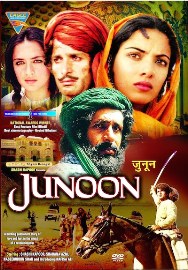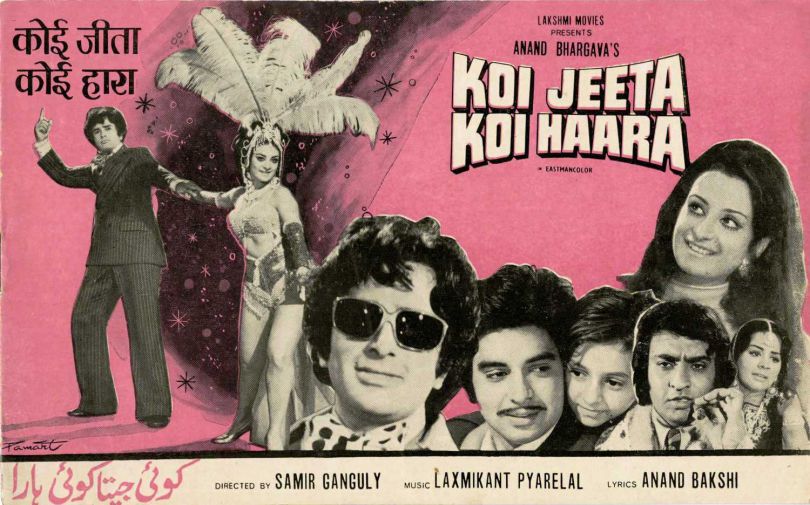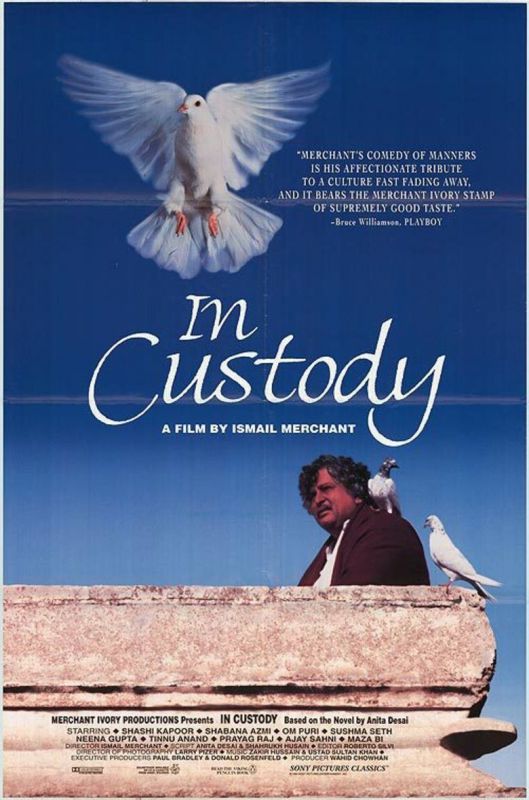|
|
||
|
Pro Tools
FILMFESTIVALS | 24/7 world wide coverageWelcome ! Enjoy the best of both worlds: Film & Festival News, exploring the best of the film festivals community. Launched in 1995, relentlessly connecting films to festivals, documenting and promoting festivals worldwide. Working on an upgrade soon. For collaboration, editorial contributions, or publicity, please send us an email here. User login |
Shashi Kapoors don’t die: Part II
Shashi Kapoors don’t die: Part II The second and concluding part of a personal tribute to the great man. It has not come soon, as you might have expected. My apologies. Too much was happening. But here we are, talking about a good actor and a great human being. Shashi Kapoor still lives. In his day, was a star. And like many in the media, he loved good music. So, my friends and I were not really surprised to spot him leaving the hall after a Runa Laila live performance at Birla Matushri Sabhagar one Sunday afternoon, in the mid 70s. Unlike me, my friends were star-struck. So were the 100-odd fans, who followed him as he walked towards his car, trying to get an autograph or offering a greeting, or doing both. My three friends knew that I was working with Shashi in two films, and asked me to help them get the mandatory autograph. I was just that bit hesitant, not because he was averse to giving autographs (he was not), but because he was already trying to wriggle out of the fan-bunch, having signed some 20. They taunted me. “Do you really know him? Are you really working with him? Then what’s the problem?” they said. I had to prove a point, and I summoned courage. Sauntering up quickly, I reached just before he could get into his car. “Good afternoon, Shashi Baba. Pleasant surprise!” He recognised me instantly, “So you like Runa too!” “Very much.... ShashiBaba, I have a request. These three guys behind me are my friends and your fans and I’ll be obliged if you gave them autographs.” “You too! Okay. But hurry, otherwise I’ll be stuck here (Marine Lines) forever (Shashi lived some 10 km away).” And the needful was done. Mr. Romeo had a song-and-dance sequence, and the Kishore-Asha duet went, ‘Hey mujhey dil dey, Naheen to sun ley, maen kya karoonga’ which had a quaint chorus refrain created by music director Pancham (Rahul Dev Burman). It went, ‘Babala babala, babala babala’. This was not the kind of nonsense verse that one heard in the songs that were composed those days. There was, of course, nonsense used for effect, like ‘Yahoo’, ‘Tarara’ and ‘Pam pam’. But ‘Babala babala’? Guess what? The pet name of director Subhash Mukerji is Babla. So, the ‘Babala’ was a stylised tribute to Babla, who was directing Mr. Romeo. News had travelled from the Nasir Hussain camp to the thick as thieves Subodh Mukerji camp that I had access to some 1,000 young boys and girls, ages 18-24, who looked fresh, were not professional junior artistes, gave the song a vivacious look and did not charge a bomb, because they were disco-goers, or simply film-buffs. So, soon after Yaadon Ki Baarat, some 150 of the ‘crowd’ were summoned to the sets of Mr. Romeo, for the picturisation of the ‘Hey mijhey dil dey’ number. One of these was a very beautiful girl, with lustrous long hair. After a shot, Shashi, who constantly pretended to learn Bengali while working with this Bangla unit, tried to score a point, by addressing her thus, “Aiy, shuno. Tomar baal khub shundor. Ki naam tumar?” Now those who knew more Bengali than Shashi and I put together, including the girl, winced at the compliment, instead of feeling elated. Reason, as I learnt later? Baal is not the Bengali word for hair. Well, to split hairs, it does mean hair, but not in the connotation that Shashi had intended. A minute later, the girl had moved out of the set, and we, including Shashi, were in splits at the bloomer. The humour got really bawdy at times. One of the direction department crew yelled after a ‘Cut’ had been announced, “One more. Ik vari hor (‘once more’, in Shashi’s native Punjabi)”. On cue, Shashi came up with, “Let’s have some more whores.” All in pure good fun, believe you me. One day, there was a power failure and electric supply could not be restored for over two hours. Shashi asked me to join him in the ramshackle Filmistan Studios' canteen for a cuppa. The star, sitting on wooden bench, sipping tea, with a small-timer, was novel, in itself. And then he went on to narrate to us the story of Conrad Rooks’ Siddhartha, which was yet to be released in India. The film gained notoriety for a nude scene of Simi, which was snipped down to a flash by Indian film censors. On the whole, the film was serious stuff. Shashi lamented, “When I was younger and full of beans, I got heavy films like Dharamputra, Char Diwari and Benazir. Now I am mature and keen on doing inspiring movies, but what am I getting? Mr. Romeo, Chor Machaye Shor, Fakira, Koi Jeeta Koi Hara! I look forward to films like the ones we make with Ismail Merchant and Siddhartha.” Indeed, there was merit in his argument.
Cut to Koi Jeeta Koi Hara, 1976. Yes, the ‘crowd’ was present here too. Check out a Kishore song that goes, ‘Hum ney har ek ghalat kaam kiya hae’. You might spot me, playing a gangster, taking alternate fills of alcohol and smoke (in real life, both were taboo). Here, the punctuality legend Shashi landed-up after lunch, a full five hours after five of us had put on make-up and were perspiring in the hot, humid weather. When he did arrive, we all lined up like local officials waiting to be introduced to a President or a King, I forget why. He was known to introduce himself as, “Jee, mujhey Shashi Kapoor kahtey haen (they call me Shashi Kapoor.” True to his reputation, he said the same as he extended a hand to me. I took his hand, shook it vigorously, and quipped, “Jee, mujhey Late Lateef kahtey haen.” Now ‘Late Lateef’ is a metaphor used in Urdu/Hindi literature to suggest that the punctuality offender is habitually late. Lateef is a name, and I guess it was chosen because it begins with L-a-t-e, like Late-ef. Shashi got positively angry. He almost yelled, “Naiem, you heard what he just said? He called me Late Lateef. I had informed you that today was the muhurt (auspicious launch) of Satyam Shivam Sundaram, and I will come only at 2 pm. Why did you call these guys early and made them wait?” Remember, those were pre-desktop, pre-laptop and pre-mobile phone days. And it could take up to 12 years to get a landline. I applied in 1971 and got it in 1983! Although Shashi had appeared as a child in Raj Kapoor’s films, this was a big break. Satyam Shivam Sundaram co-starred Zeenat Aman. Hitherto, Raj Kapoor used to star in his own films, but after Mera Naam Joker (milestone but commercial disaster) he shied away from casting himself. How could Shashi not go for the muhurt? I apologised for my Late Lateef remark, after learning about the details. Then came the Prithvi Theatre days. An initiative of Shashi’s wife Jennifer, the amphitheatre was inaugurated on the late 70s, and I had the good fortune of performing two plays there. Many other groups performed, and still do, at what grew to be the drama hub of Mumbai. Shashi would often come and watch the plays, from his own, favourite seat. A well-disciplined audience patronised the venue, with punctually starting shows, and no entry after the third bell, unless allowed by the producer at the end of an act or scene. But what I saw was Shashi walking out of a particular play, a sight that was hard to digest. He grew up on theatre at his father’s Prithvi Theatre (the auditorium is named after Prithviraj Kapoor) and Shakespeareana, run by the Kendals, his in laws. Shashi Kapoor walking out of a play, half-way, at Prithvi? I caught-up with him after the show was over in the Café. Set in idyllic surroundings, its charm has endured, 40 years later. Couldn’t help asking him, “Why did you walk out?” Pat came the reply, “It was such a pretentious, boring play!” Trying to ‘educate’ him, I remarked that this was the trend in the theatre scene on the late 70s and early 80s. “They are experimenting. These days, the plays are largely symbolic, without much of a narrative.” Shashi shrugged, “Call me old-fashioned of you like, but I cannot appreciate plays that have no head or tail. Experimenting is fine. But if you cannot make any sense an hour into the staging, you are wasting my time.” Spoken! At the café again, two decades later, I sat near his table, waiting for him to finish his conversation with a VIP of Hindi theatre, I thought I should leave, because their conversation was never-ending. As I got up, he called me, and asked me to join them. I sat down. Shashi said something that had me stunned. He hadn’t met me in about a decade. At the Filmotsav, Hyderabad, I had noticed that he had become twice his size, and wondered how and why? He was frank about it, “Jennifer used to really look after me. Now that she is no more, I eat a lot and drink a lot. Moreover, it is in our genes. Papajee (Prithviraj), Raj Saahab, Shammijee (Shammi Kapoor)...all of us put on a lot of weight after we reached 40.” His words saddened me. Now, still obese, he spoke on an entirely different subject, “Why don’t you start your own classes? Your colleagues teach acting and diction and you too taught communication skills for some time, I believe,...but why don’t you run your own workshops? I did not tell him why I did not handle the organising and administration of workshops, which is a different ball-game altogether. Instead, my admiration the youngest Kapoor brother grew tremendously. He remembered me and even remembered that I conducted workshop courses in professional voicing and telecasting. Some memory, this!
My last real interaction before his stroke was at IFFI Goa, over a decade ago. He was addressing a press conference, and the local press had little by way of query. They asked me to extract some good copy. I asked him, “Never mind that you will not act after Muhafiz (In Custody) and Akayla. But why have you stopped producing films under your Filmvalas banner? We saw such wonderful films from your stable: 36 Chowringhee Lane, Vijeta, Kalyug, Utsav, Junoon....” He half-grinned. “All of them lost a lot of money. My own directorial debut, Ajooba, was a colossal loss. I have just about repaid all my debts. It is an undeniable fact that I am a lousy producer-director, so why keep pushing my luck? No more acting, mo more producing, no more directing. I have retired. Life was rather cruel to him during the next ten years, until he retired from life itself. But he never died. Shashi Kapoors don’t die. They have so much goodness in them that they make easier for others. And then, they live in our memories and consciousness. 04.03.2018 | Siraj Syed's blog Cat. : 36 Chowringhee Lane Ajooba Akayla Conrad Rooks Filmistan Filmotsav Filmvalas In Custody Ismail Merchant Junoon Kalyug Kendal Koi Jeeta Koi Hara Mr. Romeo Muhafiz Printhviraj Kapoor Prithvi Theatre Raj Kapoor Satyam Shivam Sundaram Shakespeareana Shammi Kapoor Siddhartha Simi Utsav Vijeta Zeenat Aman PEOPLE
|
LinksThe Bulletin Board > The Bulletin Board Blog Following News Interview with EFM (Berlin) Director
Interview with IFTA Chairman (AFM)
Interview with Cannes Marche du Film Director
Filmfestivals.com dailies live coverage from > Live from India
Useful links for the indies: > Big files transfer
+ SUBSCRIBE to the weekly Newsletter Deals+ Special offers and discounts from filmfestivals.com Selected fun offers
> Bonus Casino
User imagesAbout Siraj Syed Syed Siraj Syed Siraj (Siraj Associates) Siraj Syed is a film-critic since 1970 and a Former President of the Freelance Film Journalists' Combine of India.He is the India Correspondent of FilmFestivals.com and a member of FIPRESCI, the international Federation of Film Critics, Munich, GermanySiraj Syed has contributed over 1,015 articles on cinema, international film festivals, conventions, exhibitions, etc., most recently, at IFFI (Goa), MIFF (Mumbai), MFF/MAMI (Mumbai) and CommunicAsia (Singapore). He often edits film festival daily bulletins.He is also an actor and a dubbing artiste. Further, he has been teaching media, acting and dubbing at over 30 institutes in India and Singapore, since 1984.View my profile Send me a message The EditorUser contributions |






























